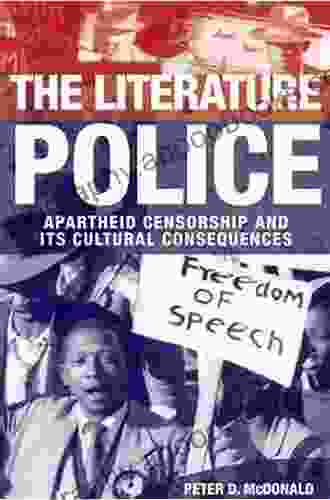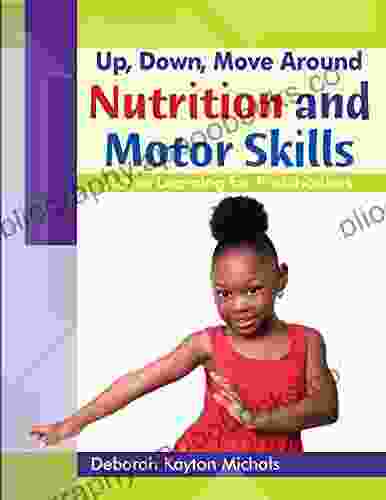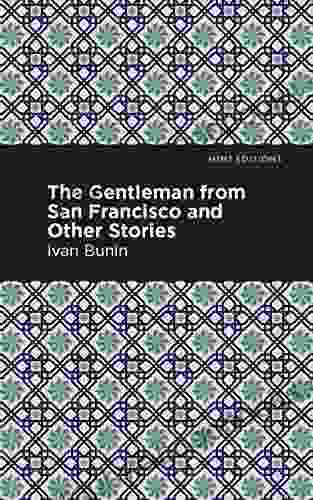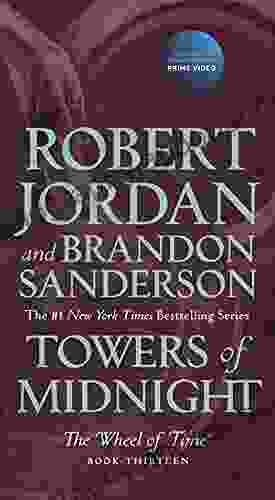Unveiling the Hidden History: Apartheid Censorship and Its Cultural Consequences

Apartheid, the oppressive system of racial segregation that plagued South Africa for decades, left an indelible mark on the nation's cultural landscape. Censorship was a key tool used by the apartheid regime to suppress dissent and control the flow of information. This article delves into the intricate relationship between apartheid censorship and its far-reaching cultural consequences, exploring the profound impact it had on literature, art, music, media, education, and the very fabric of society.
Literature: Silencing the Truth-Tellers
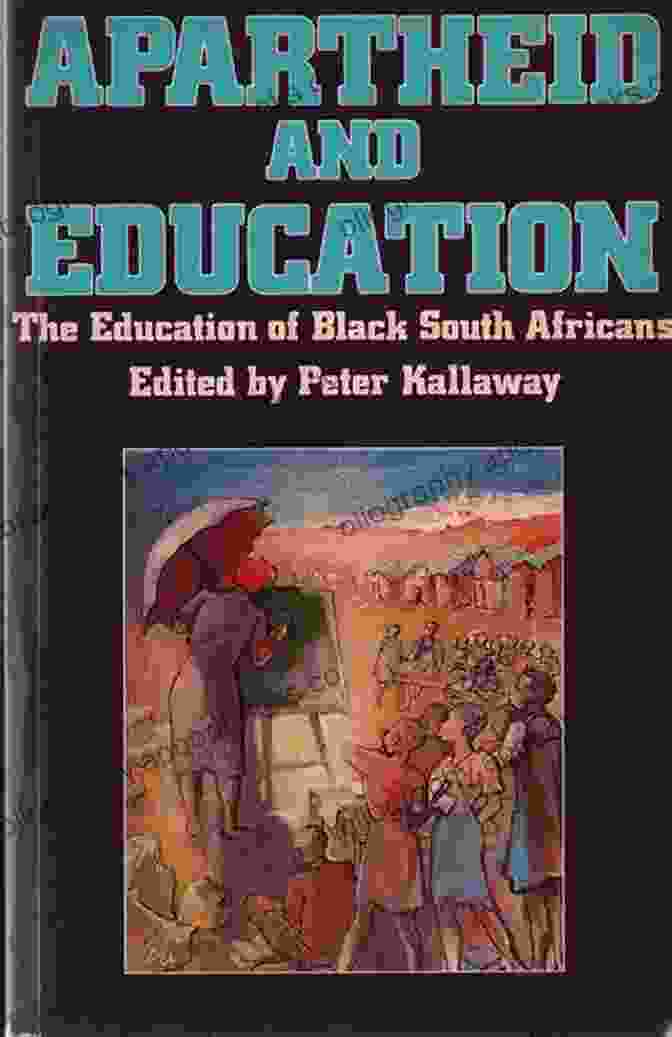
5 out of 5
| Language | : | English |
| File size | : | 3230 KB |
| Text-to-Speech | : | Enabled |
| Screen Reader | : | Supported |
| Enhanced typesetting | : | Enabled |
| Word Wise | : | Enabled |
| Print length | : | 432 pages |
| Lending | : | Enabled |
Literature became a battleground in the struggle against apartheid. Writers who dared to challenge the status quo faced relentless censorship. Books were banned, authors were imprisoned, and libraries were raided. Among the most notable works to be banned were Alan Paton's "Cry, the Beloved Country,"Nadine Gordimer's "Burger's Daughter," and Bessie Head's "When Rain Clouds Gather." These works provided a powerful voice for the oppressed, exposing the brutality and injustice of apartheid. By silencing these writers, the regime sought to suppress the truth and maintain its grip on power.
Art: Stifling Creativity and Expression
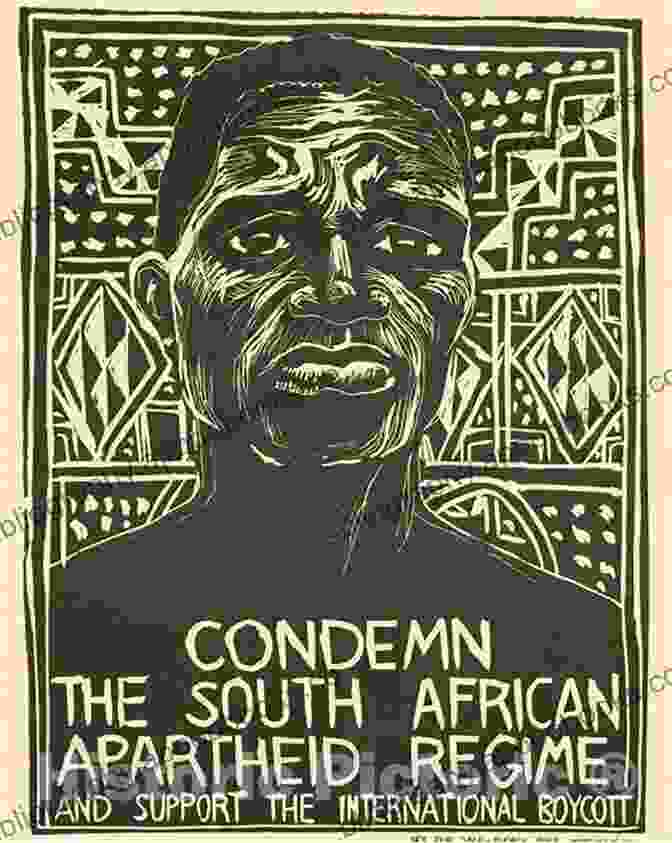
Art also became a target of apartheid censorship. Artists who depicted the horrors of the regime or challenged racial stereotypes faced harassment, intimidation, and even imprisonment. Public murals and exhibitions were censored or destroyed. Works by artists such as Dumile Feni, Gerard Sekoto, and Sydney Kumalo were suppressed, denying South Africans the opportunity to engage with and appreciate their own cultural heritage.
Music: Muzzling the Voice of Resistance
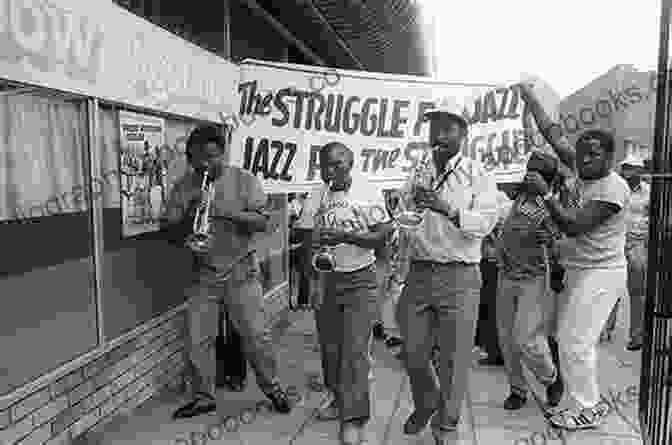
Music played a vital role in the resistance against apartheid. Protest songs and traditional African music provided a powerful outlet for expressing dissent and mobilizing the masses. However, the regime sought to silence these voices. Musicians like Hugh Masekela, Miriam Makeba, and Johnny Clegg were banned from performing or broadcasting their music. Albums were seized, and concerts were disrupted. By suppressing music, the apartheid government aimed to stifle the voice of resistance and prevent the spread of anti-apartheid ideas.
Media: Controlling the Narrative
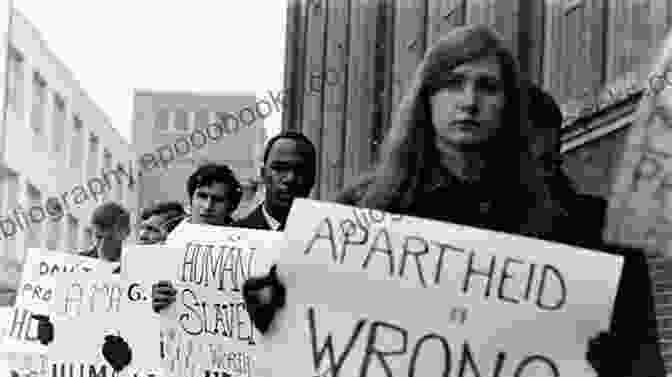
The media was a crucial tool for shaping public opinion and influencing the narrative. The apartheid regime maintained tight control over the media, suppressing critical voices and promoting its own propaganda. Newspapers and magazines that dared to challenge the status quo were subjected to censorship, bans, and closures. Journalists who reported on human rights abuses were harassed and intimidated. By controlling the flow of information, the regime sought to create a distorted reality and silence dissenting voices.
Education: Indoctrination and Suppression
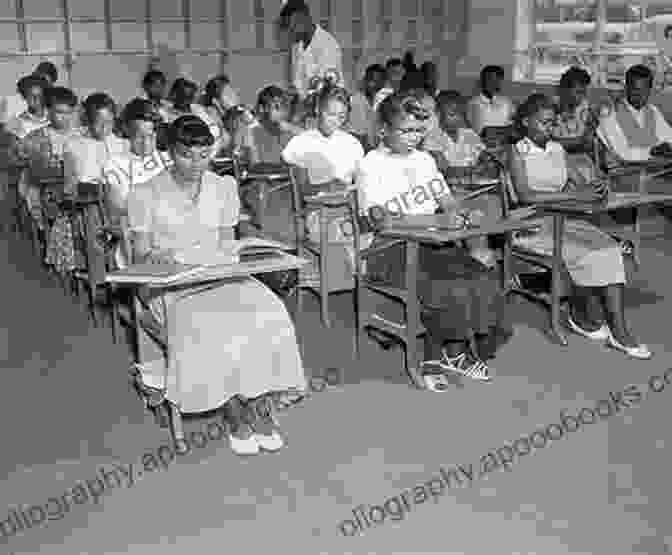
Education became a tool for perpetuating apartheid ideology. Schools were segregated, and Black students were subjected to an inferior and racially biased curriculum. Books and materials that promoted critical thinking or exposed the true nature of apartheid were banned. Teachers who challenged the curriculum or advocated for equality faced dismissal or harassment. By controlling education, the regime aimed to indoctrinate future generations and maintain racial divisions.
Society: Dividing and Silencing
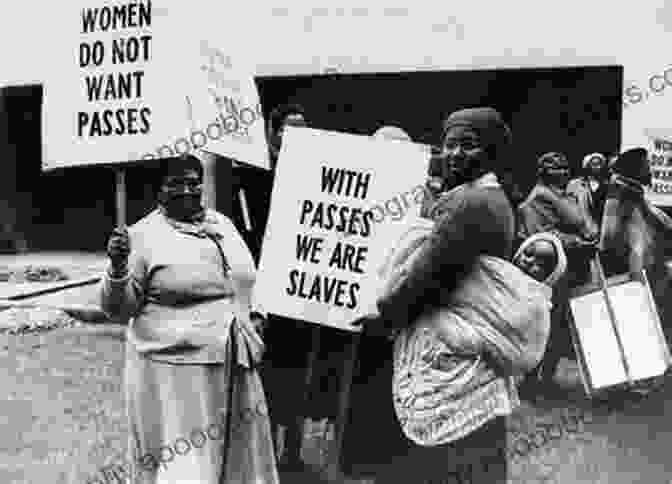
Apartheid censorship extended beyond the realm of culture and permeated every aspect of society. It created a climate of fear and mistrust, where people were afraid to speak their minds or challenge the status quo. The oppressed were silenced, and their voices were marginalized. Censorship divided communities and created a sense of isolation and hopelessness. In a society torn apart by racism and oppression, censorship became a powerful tool for suppressing the truth and maintaining control.
: Uncovering the Legacy
The legacy of apartheid censorship is a complex and enduring one. The suppression of culture during this dark period had a profound impact on South African society, silencing dissenting voices and shaping the nation's cultural landscape. However, the struggle against censorship was also a testament to the resilience and determination of the South African people. The works of banned writers, artists, musicians, and activists continue to inspire and challenge us today, reminding us of the importance of free expression and the ongoing fight against injustice.
"Apartheid Censorship and Its Cultural Consequences" provides a comprehensive analysis of this multifaceted issue, shedding light on the hidden history of censorship in South Africa. This book is an invaluable resource for scholars, students, and anyone interested in the intersection of culture, politics, and oppression. By uncovering the legacy of apartheid censorship, we can better understand the challenges faced by South Africa today and work towards creating a more just and equitable society.
5 out of 5
| Language | : | English |
| File size | : | 3230 KB |
| Text-to-Speech | : | Enabled |
| Screen Reader | : | Supported |
| Enhanced typesetting | : | Enabled |
| Word Wise | : | Enabled |
| Print length | : | 432 pages |
| Lending | : | Enabled |
Do you want to contribute by writing guest posts on this blog?
Please contact us and send us a resume of previous articles that you have written.
 Book
Book Novel
Novel Page
Page Chapter
Chapter Text
Text Story
Story Genre
Genre Reader
Reader Library
Library Paperback
Paperback E-book
E-book Magazine
Magazine Newspaper
Newspaper Paragraph
Paragraph Sentence
Sentence Bookmark
Bookmark Shelf
Shelf Glossary
Glossary Bibliography
Bibliography Foreword
Foreword Preface
Preface Synopsis
Synopsis Annotation
Annotation Footnote
Footnote Manuscript
Manuscript Scroll
Scroll Codex
Codex Tome
Tome Bestseller
Bestseller Classics
Classics Library card
Library card Narrative
Narrative Biography
Biography Autobiography
Autobiography Memoir
Memoir Reference
Reference Encyclopedia
Encyclopedia Gustavus Stadler
Gustavus Stadler Michael Mertz
Michael Mertz Shala Kerrigan
Shala Kerrigan Robert Iannone
Robert Iannone Kristine Brennan
Kristine Brennan Vi Keeland
Vi Keeland Sue Trace Lawrence
Sue Trace Lawrence K A Tucker
K A Tucker David Risselada
David Risselada Gerald Lacey
Gerald Lacey Ion Mihai Pacepa
Ion Mihai Pacepa Elaine Hall
Elaine Hall Leonora Carrington
Leonora Carrington James W Haefner
James W Haefner Hal Brands
Hal Brands Adam Clay
Adam Clay Frances Widdowson
Frances Widdowson Kristin Tate
Kristin Tate Heather Hayden
Heather Hayden Jon Mooallem
Jon Mooallem
Light bulbAdvertise smarter! Our strategic ad space ensures maximum exposure. Reserve your spot today!
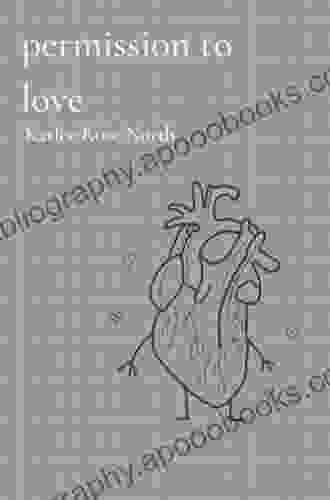
 Carlos FuentesPermission to Love Trilussa: A Journey into the Heart and Mind of Italy's...
Carlos FuentesPermission to Love Trilussa: A Journey into the Heart and Mind of Italy's...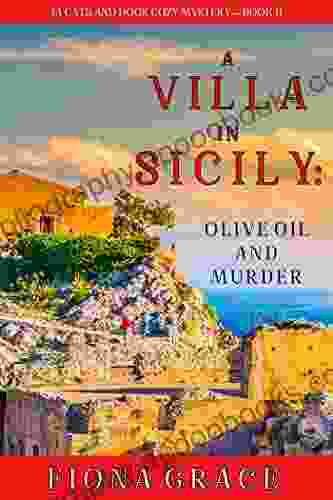
 Tennessee WilliamsSavor the Purrfect Mystery: Olive Oil and Murder Cats and Dogs Cozy Mystery
Tennessee WilliamsSavor the Purrfect Mystery: Olive Oil and Murder Cats and Dogs Cozy Mystery Theodore MitchellFollow ·7.7k
Theodore MitchellFollow ·7.7k Amir SimmonsFollow ·15.3k
Amir SimmonsFollow ·15.3k Tyler NelsonFollow ·9.6k
Tyler NelsonFollow ·9.6k John GrishamFollow ·12.6k
John GrishamFollow ·12.6k Christian BarnesFollow ·17.9k
Christian BarnesFollow ·17.9k Francisco CoxFollow ·16.8k
Francisco CoxFollow ·16.8k Fyodor DostoevskyFollow ·5.3k
Fyodor DostoevskyFollow ·5.3k Jerome PowellFollow ·4.8k
Jerome PowellFollow ·4.8k
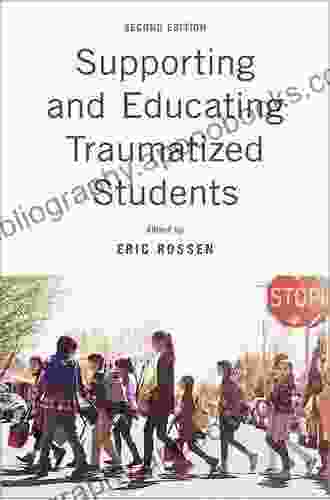
 Finn Cox
Finn CoxEmpowering School-Based Professionals: A Comprehensive...
: The Role of School-Based Professionals in...
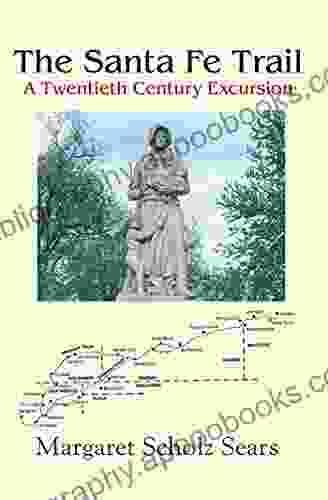
 F. Scott Fitzgerald
F. Scott FitzgeraldThe Santa Fe Trail Twentieth Century Excursion: A...
Get ready to embark on an...
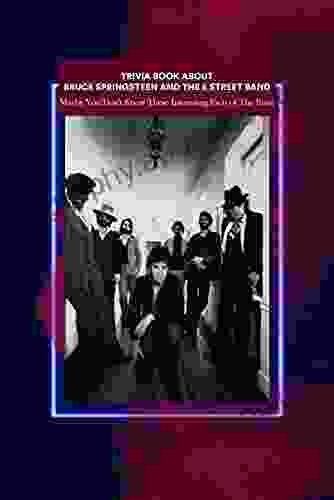
 Kendall Ward
Kendall WardThe Ultimate Trivia Guide to Bruce Springsteen and the...
Bruce Springsteen...
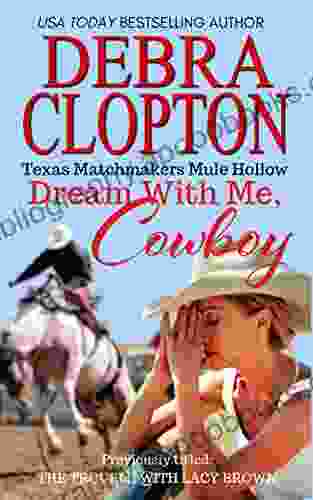
 Jedidiah Hayes
Jedidiah HayesThe Trouble with Lacy Brown: Texas Matchmakers - A...
Prepare to be swept...
5 out of 5
| Language | : | English |
| File size | : | 3230 KB |
| Text-to-Speech | : | Enabled |
| Screen Reader | : | Supported |
| Enhanced typesetting | : | Enabled |
| Word Wise | : | Enabled |
| Print length | : | 432 pages |
| Lending | : | Enabled |


